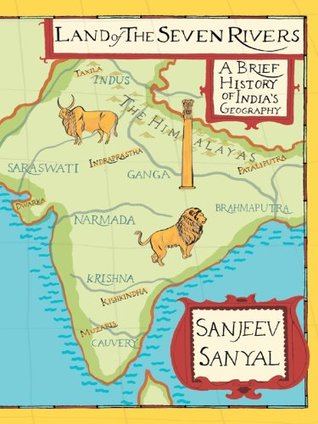More on this book
Community
Kindle Notes & Highlights
Read between
May 9, 2018 - February 1, 2020
The Shahis doggedly fought back for decades but, on 27 November 1001, they were routed by Mahmud of Ghazni in a battle near Peshawar. The Shahi king Jayapala was so distraught that he abdicated in favour of his son and committed suicide by climbing on to his own funeral pyre.
Over the next few centuries, hundreds of thousands of Indian slaves—particularly from West Punjab and Sindh—would be marched into Afghanistan and then sold in the bazaars of Central Asia and the Middle East. Unused to the extreme cold of the Afghan mountains, they died in such large number that the range would come to be known as the Hindukush meaning ‘Killer of Hindus’.
That changed in 1192 when Muhammad Ghori defeated Prithviraj Chauhan, the Rajput king of Delhi and Ajmer, in the Second Battle of Tarain (150 km from Delhi in the modern state of Haryana).
Thus we have the impossible combination of modern Indians paying their respects to an ancient imperial pillar in order to petition medieval spirits.
‘Hindustan is a place of little charm. There is no beauty in its people, no graceful social intercourse, no poetic talent or understanding, no etiquette, nobility or manliness. The arts and crafts have no harmony or symmetry. There are no good horses, meat, grapes, melons, or other fruit. There is no ice, cold water, good food or bread in the markets’. At least, Babur was very candid about why he was in India: ‘The one nice aspect of Hindustan is that it is a large country with lots of gold and money’. 24
noticed the change and wrote about it. Al-Biruni, writing at the same time that Mahmud Ghazni was making his infamous raids, commented that contemporary Indian scholars were so full of themselves that they were unwilling to learn anything from the rest of the world. He then contrasts this attitude with that of their ancestors.
Zheng He had a pragmatic view of religion. It is probable that Chinese support of Islam in South East Asia was more of a geo-political strategy to create a counterweight to the Hindus of Java. It is even possible that
The Chinese domination of the seas, however, came to an abrupt end. The mandarins decided that the voyages were not worth the expense. The treasure fleets were allowed to rot and their records suppressed. Like India, China turned inward and slipped into centuries of decline. Technological superiority could not save China from the closing of the mind.


